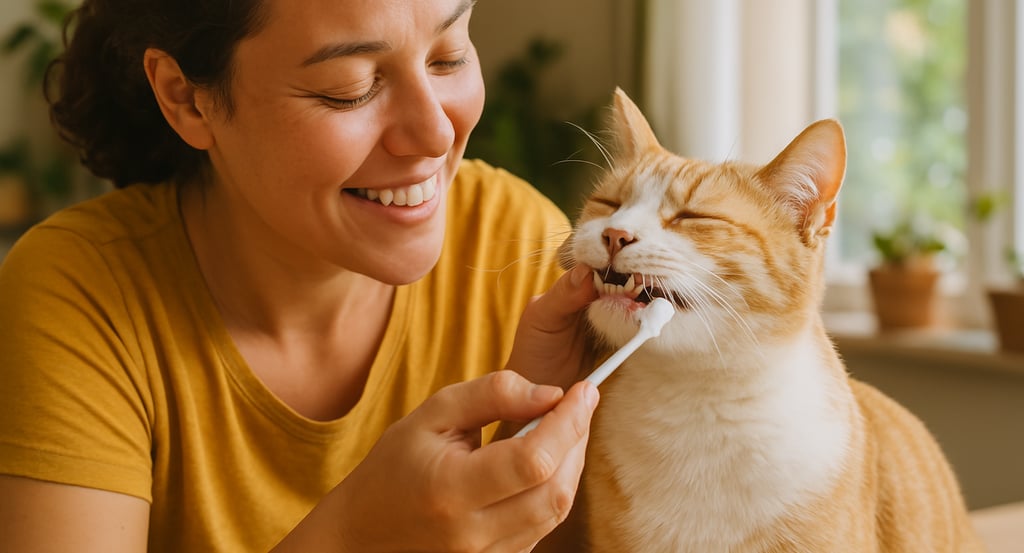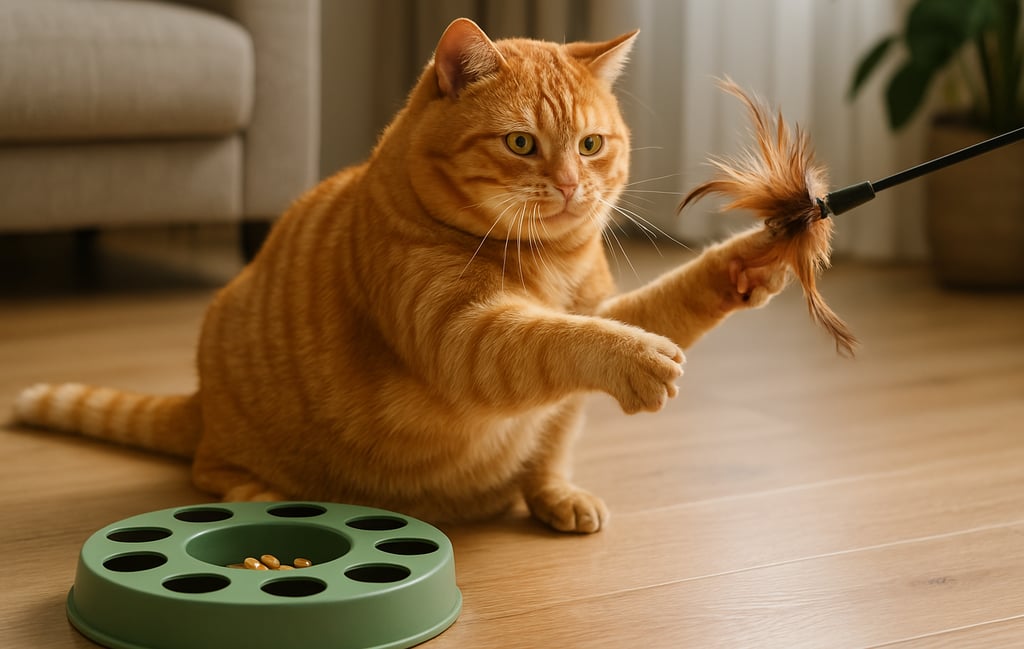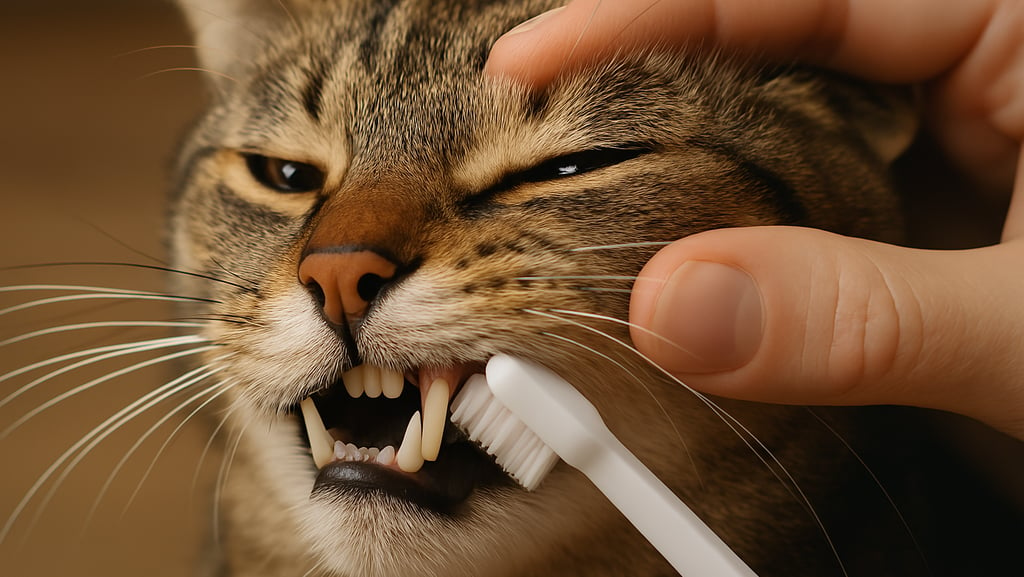Beyond the Annual Check-up: Preventative Care Tips for a Long & Healthy Cat Life
PROACTIVE & NATURAL FELINE WELLNESS


The annual veterinary check-up is a cornerstone of responsible cat ownership, providing a vital opportunity for vaccinations, parasite control, and early detection of potential health issues. However, proactive preventative care extends far beyond this yearly visit. Cultivating daily and regular habits focused on your cat's well-being can significantly contribute to their longevity, vitality, and overall quality of life. This holistic approach to preventative care encompasses everything from dental hygiene and weight management to regular grooming and diligent parasite prevention, forming a comprehensive strategy for a thriving feline companion.
The Pillars of Proactive Preventative Care
Preventative care is about anticipating potential health problems and taking steps to minimize their risk. It’s a continuous effort that empowers you to be an active participant in your cat’s health journey.
1. Consistent Dental Care: More Than Just Fresh Breath
Dental disease is incredibly common in cats, with estimates suggesting that a majority of cats over three years old suffer from some form of it. Periodontal disease can lead to pain, tooth loss, difficulty eating, and even systemic health problems if bacteria from infected gums enter the bloodstream.
Daily Brushing: The gold standard for feline dental health is daily tooth brushing with a cat-specific toothbrush and enzymatic toothpaste (human toothpaste is toxic to cats). Start slowly and make it a positive experience with treats and praise.
Dental Diets and Treats: Certain veterinary therapeutic diets and treats are formulated to help reduce plaque and tartar buildup. Look for products with the Veterinary Oral Health Council (VOHC) Seal of Acceptance.
Water Additives and Gels: Some products can be added to drinking water or applied to the gums to help inhibit bacterial growth, though they are generally less effective than brushing.
Regular Veterinary Dental Cleanings: Even with home care, professional dental cleanings under anesthesia are often necessary to remove tartar below the gumline and address any existing issues. Your vet will recommend the appropriate frequency.
2. Weight Management: Protecting Against Obesity-Related Risks
Feline obesity is a growing epidemic, significantly increasing the risk of serious health conditions like diabetes, arthritis, heart disease, liver disease (hepatic lipidosis), and certain types of cancer. It can also reduce their lifespan and overall activity levels.
Appropriate Diet: Choose a high-quality, balanced cat food that meets their nutritional needs. For overweight cats, your vet may recommend a specific weight-loss diet.
Limit Treats: Treats should make up no more than 10% of your cat’s daily caloric intake.
Regular Exercise: Engage your cat in daily interactive play sessions to help them burn calories and stay active. Provide climbing structures and toys that encourage movement.
Monitor Body Condition: Learn to assess your cat’s body condition score (BCS). You should be able to feel their ribs with a slight fat covering, see a visible waist behind the ribs when viewed from above, and an abdominal tuck when viewed from the side.
3. Diligent Parasite Prevention: Guarding Inside and Out
Parasites, both internal (worms) and external (fleas, ticks, mites), can cause significant discomfort and transmit diseases.
Flea and Tick Control: Use a veterinarian-recommended flea and tick preventative year-round, even for indoor cats, as these parasites can easily enter homes. Products come in various forms (topical, oral).
Heartworm Prevention: While less common in cats than dogs, heartworm disease can be fatal in felines. Discuss prevention with your vet, especially if you live in a high-risk area.
Deworming: Kittens require a deworming schedule. Adult cats should have regular fecal examinations to check for internal parasites, and deworming should be based on these results and lifestyle risk factors.
Environmental Control: Regularly wash your cat’s bedding, vacuum frequently, and maintain a clean environment to reduce parasite populations.
4. Regular Grooming: Coat, Claws, and Skin Health
Regular grooming not only keeps your cat looking good but also provides an opportunity to check for skin issues, lumps, or parasites.
Brushing: Brush your cat regularly (daily for long-haired breeds, weekly for short-haired) to remove loose fur, prevent matting, reduce hairballs, and distribute skin oils.
Nail Trimming: Trim your cat’s claws every 2-4 weeks to prevent them from becoming overgrown, ingrown, or causing damage to furniture (or you!). Introduce nail trimming gradually and make it a positive experience.
Ear Checks: Regularly check your cat’s ears for signs of redness, discharge, odor, or debris, which could indicate infection or ear mites.
Eye Checks: Ensure your cat’s eyes are clear and bright. Minor tearing is normal for some breeds, but excessive discharge or redness warrants a vet visit.
5. Creating a Safe and Stimulating Environment
Preventative care also involves minimizing environmental hazards and ensuring your cat’s mental well-being.
Cat-Proofing Your Home: Remove or secure toxic plants, chemicals, medications, small objects that could be swallowed, and ensure windows and balconies are secure.
Mental Stimulation: Prevent boredom and stress by providing puzzle toys, interactive play, vertical spaces, and window perches.
Stress Reduction: Maintain consistent routines, provide safe hiding spots, and manage inter-cat conflict in multi-cat households.
Proactive preventative care is an investment in your cat’s long-term health and happiness. By partnering with your veterinarian and incorporating these practices into your daily life, you can go far beyond the annual check-up to provide your feline companion with the best possible chance for a long, vibrant, and healthy life.
CTA Teaser: Our Holistic Cat Health guide provides a comprehensive plan for proactive, natural preventative care, covering everything from nutrition and dental health to stress management and early detection of illness. Empower yourself to give your cat a lifetime of well-being!






